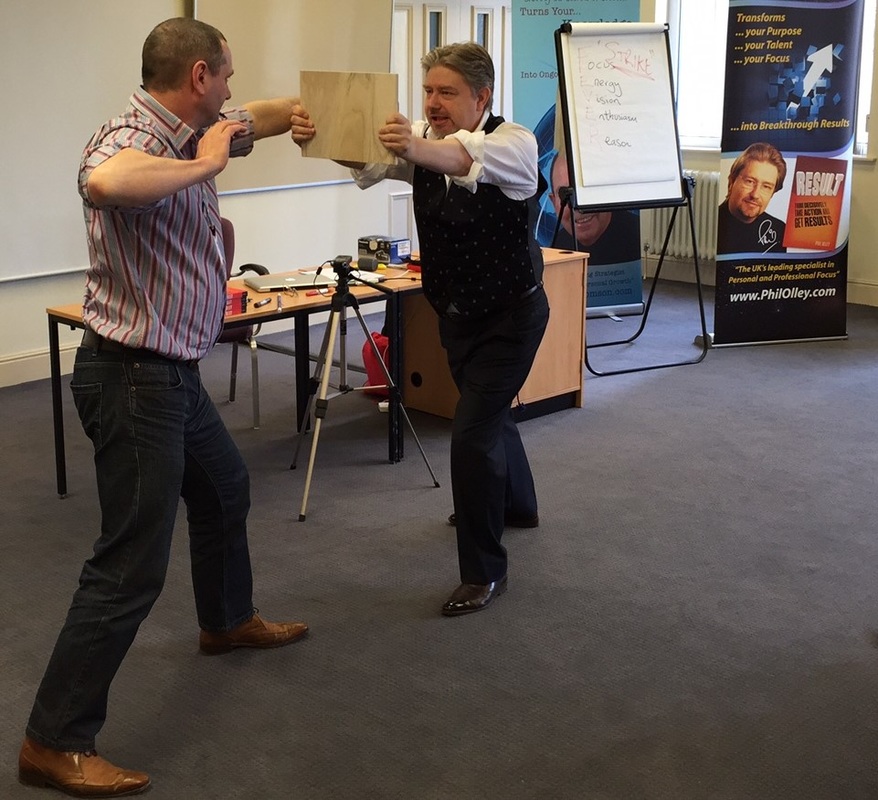|
“Nobody’s looking – let’s dance!”
The Thursday Thesis - 22/11/2016 We all do it, don’t we? We dance when nobody is watching, we sing ourselves hoarse in the car, and we come more fully to life - when nobody’s watching! It’s a perfectly natural thing, and we all do it without giving it a thought. It's as though there’s an irrepressible “Rhythm-Monkey” inside us, dedicated to synchronising our movements with the ever-changing rhythms and beats of our tribe - putting us in-step with the people and events around us. This shouldn’t be a great surprise, given that humans are pack animals, and that within a moving group of animals or people it’s easier to communicate with other members of the pack if everyone moves in step and maintains non-verbal communication to support any verbal interactions. You can easily test this, by the way: next time you’re walking with someone, try breaking stride with them and notice how difficult it becomes to maintain the conversation. So our Rhythm-Monkey instinctively moves us in time with any music we hear: that’s why the music in your life really matters. And that's why supermarkets have been using slow music, for decades, to slow us down and increase sales. And aren’t there some tunes you play in the car that make you drive just a little too fast? We all were born to dance, and we do it without thinking - when nobody is watching. But put another person in the room and we freeze, become suddenly self-conscious and aware of a completely natural behaviour that is not socially “The Done Thing”. Unless (and if you’re a bloke, especially if!) we’re in a club or other socially sanctioned place, dancing is somehow... how shall I put it?... Well, you know what I mean. But since humans are born to dance, run and sing – is it wise to deny or suppress this part of our inheritance? My friend, Simon Martin, is a man on fire for laughter, music and stories (WWW.StoryBodger.com) and he told me of a Scandinavian doctor who asks depressed patients “When did you stop dancing?” Wow– what a great question. To put it another way: at what point did you deny and repress a vital part of what makes you human? But the question originated in the ancient Shamanic tradition, where a depressed seeker would approach the Shaman with their melancholy and ask for help. The Shaman would ask the seeker one of four questions: When did you stop dancing? When did you stop singing? When did you stop being enchanted by stories? When did you stop being comforted by the sweet territory of silence? So, how about you? When did you stop, and when will you begin, again? Now would be a good time, don’t you think? © Neil Cowmeadow 2016 Please Like and Share The Thursday Thesis with your friends, family, your cat and anyone else. I’d love to hear your comments, along with any ideas you’d care to hurl at me. [email protected]
1 Comment
The Thursday Thesis - 17/11/2016 “The joy of Being Out of Order” Humans are pack animals, and there’s always pressure on us to “blend-in” and become just like the next person in the line. That’s why people follow fashions and fads that come and go so often. In life and business there is pressure to conform to what everyone else is doing, and to compete on their terms- say – on price alone. In the cut-price race to the bottom, everyone wants you to become a commodity. Your job is to stand out from the masses and to be Extra-Ordinary... extraordinary (adj.) early 15c., from Latin extraordinarius "out of the common order," from extra ordinem "out of order," especially the usual order, from extra "out" (see extra-) + ordinem, accusative of ordo "order" (see order (n.)). Related: Extraordinarily; extraordinariness. Being commonplace or ordinary doesn’t offer much scope for you to differentiate yourself, so being a low-price provider makes sense if you have nothing else to offer to your clients – beyond the low price-tag. When you see goods or services being sold at a fraction of the usual going rate, don’t you look for the reason they are so underpriced? And don’t you understand that you always get what you pay for? Be different, walk a different path, and don’t ever try to blend in and become a commodity. Be extra-ordinary. © Neil Cowmeadow 2016 Please Like and Share The Thursday Thesis with your friends, family, your cat and anyone else. I’d love to hear your comments, along with any ideas you’d care to hurl at me. [email protected] The Thursday Thesis - 10/11/2016 “Now: Hear This.” I own a best-selling book on Time Management. It’s rather a nice book, well-written, and with a jolly picture of a clock-face on the front. And It is, of course, 100% pure wrong. Don’t get me wrong - the book is fine, as books go. It’s 100% pure wrong because the central idea of Time is wrong. For humans, Time does not exist in any substantial sense and therefore we can exert no influence over Time. How then, could we ever hope to Manage it? Time is an illusion invented to allow mankind to make sense of life and our place in the world. But we can only ever live in one instant – the Now. Yesterday’s gone, and tomorrow is a dream away. This is Now. My Question is this – what will we choose to do with this one scintilla of life? We might choose to spend the only true reality – the Now – trying to recapture a yesterday that no longer exists. Or we’ll perhaps wish for a dream that tomorrow will bring into Now, then cruelly spirit the dream into another yesterday... Worse still, we could worry about tomorrow’s dream being a nightmare that will somehow arrive and never leave. Or we could choose to savour the Now, knowing that it must pass, as all things do. My friends, in just 48 hours, your tomorrow will have become your yesterday. I ask you - how will You choose to be, feel, and live, right here in this Now? © Neil Cowmeadow 2016 Please Like and Share The Thursday Thesis with your friends, family, and anyone else.
I’d love to hear your comments, along with any ideas you’d care to hurl at me. [email protected] The Thursday Thesis - 3/11/2016 “If it’s worth doing, it’s going to be hard to do”. You’ve heard it for most of your life, the same as I have. The only problem with it is this: it isn’t true. Regardless of whether it’s a lie or a mistake, it adds a moral judgement to the whole process of learning and working. Just letting that phrase live in your mind poisons you by its insistence that learning easily and quickly is wrong, and that work must necessarily be hard or unpleasant. Doesn’t that strike you as utterly messed-up? You see, doing things the hard way is neither more nor less moral than doing things easily: if your outcome is the same in either case, whether it’s hard or easy to do is irrelevant. Work is morally neutral, unless you choose to adopt the moral attributions of control-freaks and oppressors. If taking the arduous, long road to your destination enthrals you, then go ahead and take that road. But – in life - you choose the destination, and you get to choose the route. So, if your aim is to learn, build or create something that matters to you, or master a skill quickly, surely the route should be as easy, and as fast as possible? The best way to learn anything, quickly and easily, is to spend time with someone who already has the skill-set you want to have: a master of the game you want to play. By modelling and reproducing the mindset and behaviour they already have, you will become just like them, and you’ll produce the same results they produce. Best of all – make it fun, because there is no inherent superiority in struggle or hard labour, though we are often invited to attribute a special quality to such things. Would anyone but a charlatan or a fool insist that we or our children struggle to learn, to grow and to flourish? Why don’t we teach children how to learn, instead of what to learn and telling them how hard it will be? So, ask yourself what skill would you like to learn - how quickly and easily would you like to master that skill, and to enjoy the benefits of having it? And how much fun would it be, learning that skill? Yes, Fun! Remember that stuff? If there’s one tip that beats them all for accelerated learning, it is to have fun! If you’re having fun, your mind will be in “Receive Mode”, and you’ll want to do it again and again. Wouldn’t you want to come back for more if learning was a game that you loved to play? Take a moment, right now, and have fun imagining your mind in a playground of new ideas, opening-up mysteries and exploring the unknown... That’s what learning really is – and doesn’t that sound like a ton of fun? © Neil Cowmeadow 2016
Please Like and Share The Thursday Thesis with your friends, family, and anyone else. I’d love to hear your comments, along with any ideas you’d care to hurl at me. [email protected] |
Share it with your friends
It's Like This...The Thursday Thesis shares ideas which I think are worth spreading. Archives
May 2022
Categories
All
All content on these pages is the intellectual property of the author, unless otherwise stated, and may not be used in any form or reproduced under any circumstances without the authors permission.
|




 RSS Feed
RSS Feed